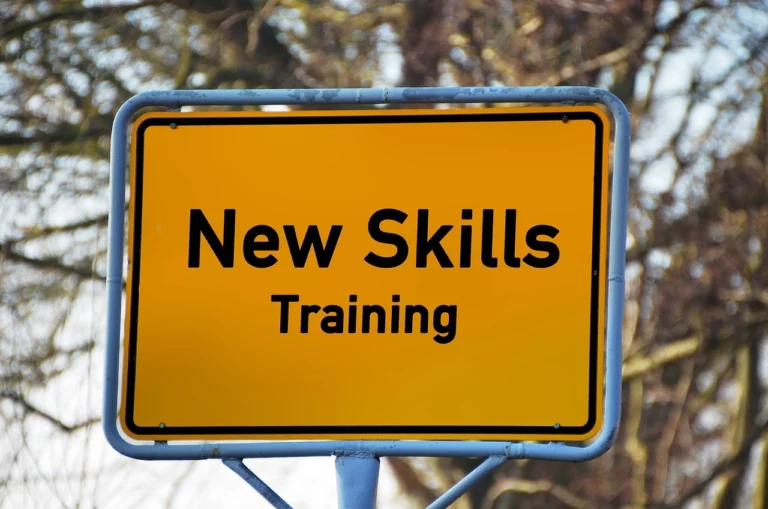“Mentoring is a brain to pick, an ear to listen, and a push in the right direction.”
John Crosby
A strong mentoring program can change the lives of both mentors and mentees by giving
them important chances to grow, learn, and connect with each other.
Mentoring is a powerful and rewarding relationship that can help people grow
personally and professionally by giving them advice, support, and useful insights. A
mentor is an experienced and trusted advisor who shares their knowledge, expertise,
and experiences with a mentee to help them reach their goals and make it through
their trip successfully.
Check out this-Quality Management System- Purpose & 7 benefits
- How to Find a Mentor?
- A Complete Guide: Building a robust Mentoring Program
- Define the goals and scope of the mentoring program
- Get the help and resources you need
- Make a plan and rules for the program
- Find mentors and train them
- Find and pick your mentees
- Help mentors and students find each other
- Give them ongoing help and resources
- Celebrate your success and help it last
- Conclusion
- FAQS:
- Key Takeaways:
How to Find a Mentor?
A mentor is someone who helps their mentee by being a role model, a teacher, and
a friend. They are experts in a certain area or field and are ready to share their
knowledge and experiences with mentees to help them improve their skills and reach
their full potential. A mentor gives advice, comments, and support, making it safe for
mentees to try out new ideas, ask questions, and get help.

1. Why it’s good to have a mentor?
Having a mentor can change a person’s life and bring them many rewards. Mentors
give advice which is specific to the wants and goals of the person to whom they are helping.
They can give advice about their business or job, introduce their mentees to
important people, and give them chances to improve their skills. Also, mentors act as
champions for their mentees and helping them move up in their careers and grow as
people.
Leader’s Tip
Build a network and look for teachers who can help you reach your goals.
2. Setting your goals for mentoring program
Before you look for a guide, you need to know what you want to get out of the
relationship. Make it clear what you want to get out of the coaching relationship and
where you need help and advice. Whether you want to move up in your job, improve
certain skills, or learn more about a certain industry and having clear goals will help you
find a mentor who is a good fit for your goals.
3. Trying to Find Mentors in Your Network
Start looking for a guide among the people you already know. Find professionals,
co-workers, or friends who have the information and experience you’re looking for.
Think about reaching out to your boss, a senior employee, or a former student from
your school. A guide from your network is more likely to know about your past and
problems, which makes the mentoring relationship stronger.
Check out this video:
4. Trying to find people outside of your network
If you can’t find a good guide in your network, you might want to look in other places,
like professional groups, networking events, or online platforms. Mentorship-focused
websites and apps can put mentees in touch with possible mentors from a wide
range of fields and backgrounds. Reach out to possible mentors, tell them you’re
interested in their help, and explain how you think their knowledge can help you
grow.
5. How to Make a Mentoring program Worthwhile
Once you’ve found a mentor, work on making the connection meaningful and helpful.
Set clear standards about how often and how the meetings will be held, how people
will communicate, and what the goals of the mentoring relationship are. Be willing to
hear comments, take part in discussions, and show that you want to follow your
mentor’s advice.
A Complete Guide: Building a robust Mentoring Program
A robust Mentoring Program is a powerful way to help people grow personally and
professionally, create a supportive environment, and encourage people in organisations and
groups to share what they know. It includes matching experienced mentors with mentees
who want help and ways to grow. This section tells you everything you need to know to
start a mentoring program that works well, lasts, and helps everyone involved.
Define the goals and scope of the mentoring program
Before starting a mentoring program, make sure its goals and reach are clear. Think about
the needs and goals of the people you want to reach, whether they are employees in a
business, students in a school, or members of a community group. Finding out what the
program’s goals are will help develop mentoring activities and choose the right teachers and
mentees.
Read More – 111 Best Spiritual Quotes to Illuminate Your Soul
Get the help and resources you need
For a mentoring program to work, it is important to get help from key stakeholders like
senior management, HR departments, and organisational leaders. Get their help and
promise to give resources, such as time, money, and staff support, to make sure the
program runs smoothly.
Make a plan and rules for the program
Make a programme framework that is clear and concise and lists the main parts of the
mentoring program. Find out how long the program will last, how often it will meet, and
what the mentorship lessons will look like. Think about whether the mentoring program will
be one-on-one or in a group, and decide what the mentors’ and mentees’ roles and tasks
will be. Set rules for mentorship sessions, confidentiality, and contact to make the
experience more structured and useful.
Leader’s Tip
Make a well-organized programme with clear goals and rules.
Find mentors and train them
To start a strong mentoring program, it is important to find teachers. Find people who have
the knowledge, experience, and willingness to help their mentees grow and improve. Give
mentors training classes to teach them important skills like active listening, giving good feedback, and setting goals. Training makes sure that teachers know how to help their mentees in the best way possible.
Find and pick your mentees
Find possible mentees based on their job goals, development needs, and how well they fit
with the goals of the programme. Set up a fair and clear way to choose mentees and
teachers who are a good fit for each other. Consider interviewing or surveying mentees to
find out what they want and how they want to be paired with a guide. This will help make
sure that the pairings go well.
Help mentors and students find each other
Once teachers and mentees have been found and chosen, help them get matched up. When
making matches, think about things like shared interests, job goals, and personalities. Try to
pair up mentors and mentees who can get along and keep a good and helpful mentoring
relationship going.
Give them ongoing help and resources
For the mentoring programme to work, both teachers and mentees need to be supported
throughout. Offer check-ins and feedback sessions on a regular basis to deal with any
problems or worries that may come up during the coaching relationship. Also, offer tools
like mentorship toolkits, workshops to improve skills, and networking events to make the
mentoring experience better.
Celebrate your success and help it last
Recognise and enjoy the successes of mentors and mentees to show how the mentoring
programme has helped. Creating a mentoring culture within an organisation or society
makes it more likely that people will continue to take part in mentoring programmes in the
future.
Conclusion
A strong mentoring programme can change the lives of both mentors and mentees by giving
them important chances to grow, learn, and connect with each other. By following the steps
in this guide, organisations and communities can create a mentoring setting that is
supportive and gives people the tools they need to grow personally and professionally.
Building a strong coaching programme takes time, work, and ongoing commitment, but the
benefits in terms of personal growth and organisational success make it well worth the
effort.
FAQS:
What is robust mentorship program?
A robust Mentoring Program is a powerful way to help people grow personally and
professionally, create a supportive environment, and encourage people in organisations and
groups to share what they know.
How do I find mentors for a mentorship program?
Mentorship-focused websites and apps can put mentees in touch with possible mentors from a wide
range of fields and backgrounds. Reach out to possible mentors, tell them you’re
interested in their help, and explain how you think their knowledge can help you
grow.
How do I start a successful mentoring program?
- Define the goals and scope of the program
- Get the help and resources you need
- Make a plan and rules for the program
- Find mentors and train them
- Find and pick your mentees
- Help mentors and students find each other
- Monitor and evaluate the effects of the program
Key Takeaways:
- Mentoring helps people grow as people and grows their business networks.
- A well-run mentoring programme helps both the teachers and the people who are being mentored.
- When you build important relationships with mentors, you get to learn new things.

